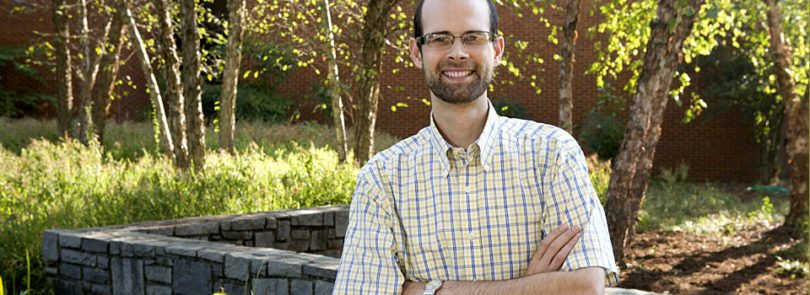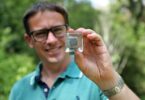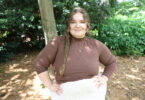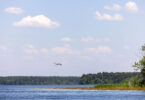John Drake, an associate professor in the Odum School of Ecology, is known for the time and effort he puts into guiding undergraduate students involved in research projects in his lab.
Where did you earn degrees, and what are your current responsibilities at UGA?
I hold a Ph.D. and M.A. from the University of Notre Dame. My B.A. is from Covenant College in Georgia. As an associate professor of ecology, my responsibilities include teaching, research and service. I also am affiliated with the UGA Biomedical and Health Sciences Institute and with the Faculty of Infectious Diseases.
When did you come to UGA, and what brought you here?
I came in 2006 from the National Center for Ecological Analysis and Synthesis in Santa Barbara, Calif. The University of Georgia has long been a world leader in ecology, and I was flattered to be invited to join its faculty.
What are your favorite courses, and why?
I enjoy my graduate course in population and evolutionary ecology (ECOL 8310) because this is where we work on understanding the real cutting edge of our discipline. I also enjoy my first-year odyssey seminar, where we’re studying mathematical biology. I really believe that bringing quantitative training into the curriculum earlier is the future of education in the life sciences. But I want to have a broad view about what mathematical biology is. In my view, it includes the classical disciplines of statistics and dynamical systems and also aspects of computer and information sciences, like data information systems and algorithms, and even humanistic topics, such as the aesthetics of data visualization and design.
What interests you about your field?
I think the problem of getting data together with theory is paramount. I want to advance the flow of information and ideas across the barriers that separate theoreticians and experimentalists.
What are some highlights of your career at UGA?
Last year, I received the Center for Undergraduate Research Opportunities Faculty Mentorship Award. A number of our research findings have been covered in the popular media. Particularly last year, we received a lot of attention for an experiment showing the presence of a subtle numerical phenomenon preceding the tipping point a population crosses en route to extinction.
How does your research or scholarship inspire your teaching?
I like to bring examples of our research into the classroom—to show students how the theory we study in class is applied to solving technical, real-world problems. At the same time, I hope that I can guide them in their academic careers—to take challenging and useful classes, to find research opportunities and to engage in scholarly activities of all kinds early and often.
What are your goals for students who work in your lab?
My goal in undergraduate research mentoring is to provide students with an experience that teaches them two things. First, they should learn something about science—something they didn’t know before, something that couldn’t be learned in coursework. Second, they should learn something about themselves—something about what kind of learner they are, what kind of scientist they could be.
Describe your ideal student.
There is no ideal student—or maybe the way to put it is that there are so many ways one can be an ideal student. One feature they all share, however, is that they are driven by a dogged determination to find out the truth, to find out how the world works and not to accept vague or wishy-washy answers couched in academic-speak.
Beyond the UGA campus, I like to…
…be with my family. I have three kids aged 4, 6 and 7. They are my most important inspiration and greatest responsibility.
Favorite book/movie?
I like intellectual history—the history of ideas, the history of how the way thinking has changed, especially the history of science. I can’t name a favorite book, but a good one that I read recently is also an old one: Adventures of a Mathematician, which is the autobiography of Stan Ulam. Ulam was a brilliant mathematician and also an insider in the Manhattan Project. It’s hard to imagine a more telling example of how an abstract idea (the mathematics of branching processes) changed the world we live in (the technologies of atomic energy and weaponry).








